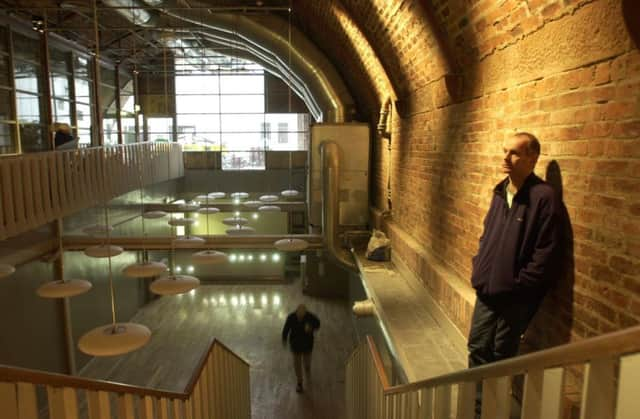Joyce McMillan: Glasgow needs to rediscover 80s cultural energy


Danny Boyle, patron of the new £27 million Home arts complex, celebrates a city willing to invest in the arts as a way of opening up new futures and new skills; Dave Moutrie, Home’s chief executive, talks about the spirit of co-operation between arts organisations and local and national government that is driving Manchester’s current rapid cultural development – which, by 2017, should also see the opening of another huge new arts space, The Factory, a home for the biennial Manchester International Festival.
All of which is fantastic news for the cultural life of a country – England, and the UK as a whole – that can only benefit from becoming less London-centric, and more aware of its own regional richness. As I listen, though, I realise that all this is reminding me of something. And what it recalls is the terrific alliance of forces that came together in Glasgow 30 years ago, to drive the city’s emergence as an acknowledged cultural powerhouse on the European stage, to open up a whole range of new venues from the Tramway and the Arches to the brand new Concert Hall, and to invest an unprecedented £40 million in Glasgow’s great transformational year as European City of Culture, 1990.
Advertisement
Hide AdNow it’s not, 25 years on, that Glasgow has entirely lost the momentum built up during that remarkable period. It’s true that the city lost its annual Mayfest in 1997, and that the Tramway is no longer a year-round venue for large-scale international theatre. Yet Glasgow has continued to be the home of Scottish Opera, Scottish Ballet, the RSNO and now the National Theatre of Scotland; its rich supply of underused urban spaces still makes it a hospitable city for young artists. And the city has also continued to spawn new festivals, from the mighty Celtic Connections, to the recent Dance International Glasgow (DIG) dance festival.
Yet the recent threat to the Arches – “stunned” by a police-enforced end to the club nights that help to finance the arts programme – raises questions about whether Glasgow now needs to make a conscious effort to revive the dynamism of that 1980s period. At the moment, the Glasgow arts scene is perhaps inevitably involved in a rearguard action to protect what has been built up at the Arches, and to find a model that will enable this magnificent post-industrial space to continue to play a key role in Glasgow’s cultural life; like the imminent loss of the Concert Hall’s iconic steps, at the top of Buchanan Street, the threat to the Arches suggests a certain civic carelessness about the cultural landscape the city worked so hard to build up.
Yet with Manchester emerging as the UK’s new second city of culture, Dundee investing in the arts as never before, and even Edinburgh rousing itself to defend and develop its year-round cultural life through initiatives like the Desire Lines process and Live Music Matters, it’s perhaps time for Glasgow to start thinking ambitiously again, about how it can build on the terrific cultural reputation it won a generation ago. When Glasgow set out on its cultural journey back then, after all, at the height of the Thatcher era, money was as scarce as it is today, and local authority spending almost as constrained.
Yet nonetheless, alliances were built, public support was gathered, there was plenty of inspired cultural entrepreneurship and leadership; and more was achieved, in the end, than anyone thought possible. And if the threat to the Arches reminds Glasgow of how it was done then, and can still be done today, then it may – paradoxically – mark the beginning of a new cycle of good times, for a city that always has been, and still is, at the very heart of Scotland’s creative life.